Toshiba SSHD 1TB review
4. Benchmarks- page 1
Review Pages
We continue with the typical tests we run when it comes to it to measuring performance of the HDDs and SSDs. These benchmarks are geared at showing the performance of the Toshiba SSHD in an uncached scenario. Since not all files on the system will be cached, the focus here is on the un-cached performance of the drive.
We start the tests with the HDTachRW software, which measures the sequential read speed, the random access speed and sequential write speed.
The drive gave 94.8MB/s and 94.5MB/s on average for sequential reads and writes, respectively:
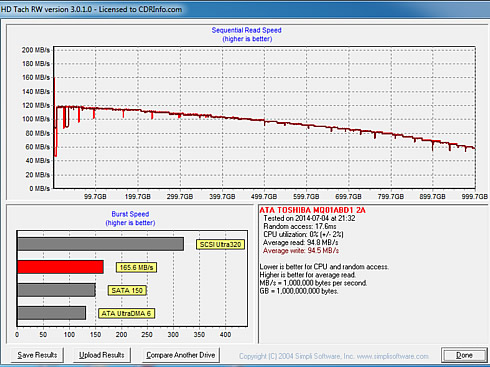
We move on to the HD Tune Pro software, another utility we used to measure the drive's reading and writing performances. Although not necessarily representative of real-world workloads, HD Tune's targeted tests give us a glimpse of each drive's raw capabilities.
We were teased to see whether running the benchmark more than once would make any significant difference in its performance. So below you see three benchmarks run sequentially. The average reading speed was slightly increased in the 3rd run:
- 1st run
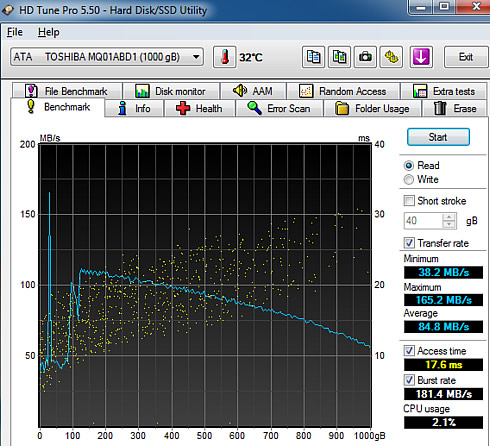
- 2nd run
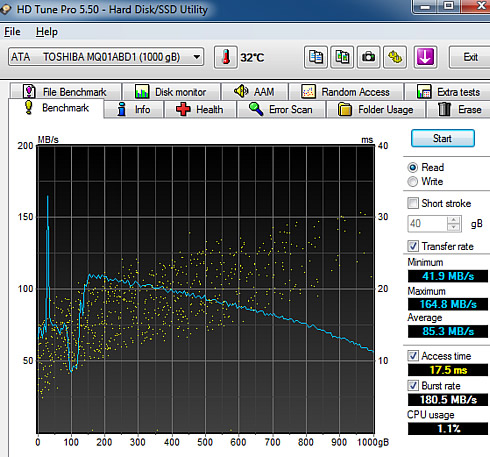
- 3rd run
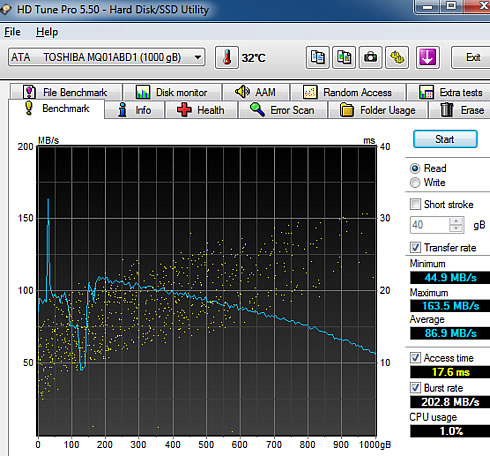
Below you see a sequential write test, which returned an average speed of 84.3 MB/s:
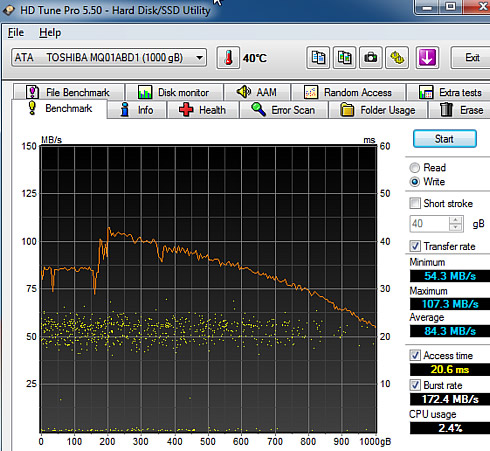
HD Tune's file benchmark consists of two parts: the transfer speed test and block size test. The transfer rate test measures three different parameters for both reading and writing:
- Sequential: the sequential speed is measured and shown on the graph. Ideally the transfer speed line should be straight and smooth.
- 4 KB random single: this test measures the performance of I/O operations of 4096 byte blocks - the most common I/O operation on a typical system. Especially the 4 KB write speed is an important indication of general system performance.
- 4 KB random multi: this test is similar to the 4 KB random single test except that multiple requests are sent simultaneously to the device. We set the number of operations to 32.
Below you see random reading test, where the Toshiba SSHD gave a 21.547 MB/s average reading speed for an 1MB transfer size and just 16.092 MB/s average reading for transferring files with random sizes.
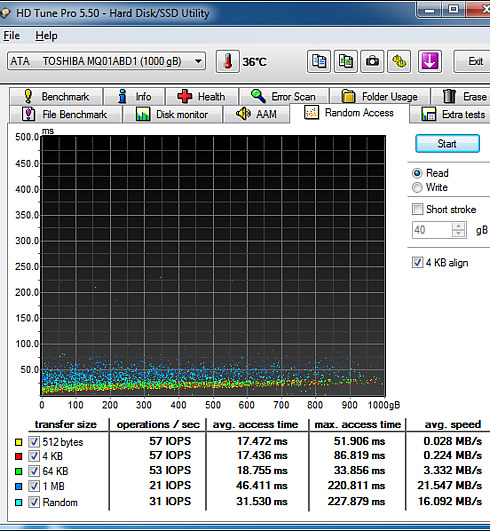
HD Tune's file benchmark also features three data patterns available that can be used during the write process: zero, random and mixed, which is a combination of zeroes and random data. Certain SSDs use a compression technique which improves performance when compressible data is used. For these devices the results will be highest when writing zeroes and lowest when writing random data.
Let's start with a sequential transfer speed of a 500MB file using zeros in the writing part:
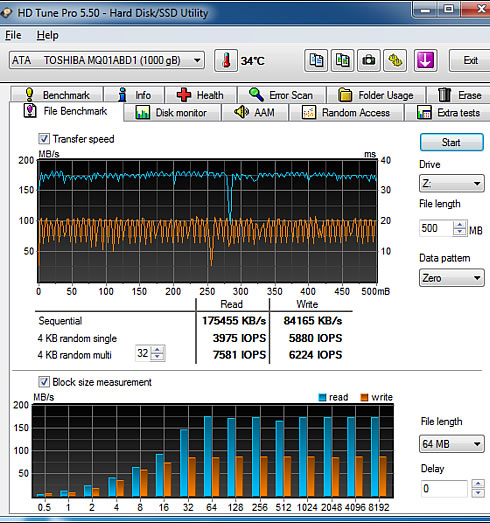
The Toshiba SSDD read the 500MB file at an average speed of 175 MB/s and wrote the file at 84 M B/s - a typical performance of a 5400 RPM HDD. The 4K random single performance with 4096 byte blocks was 3975 IOPS for reading and 5880 IOPS for writing. . When we enabled the 32 requests option, both figures were boosted up to 7581 IOPS and 6224 IOPS for both read/write, respectively.
Selecting the "Random" data pattern (zeroes and data) had not any serious impact to drive's sequential read performance:

The reading performance with a "mixed" data pattern remained in the same levels as we previously saw:

Below you see some additional sequential and random reading and writing tests:
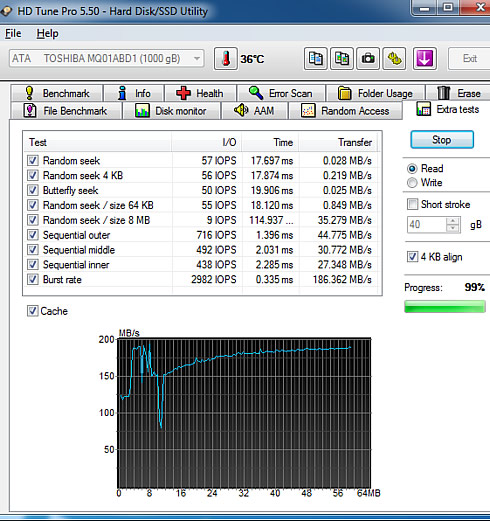
Review Pages





















